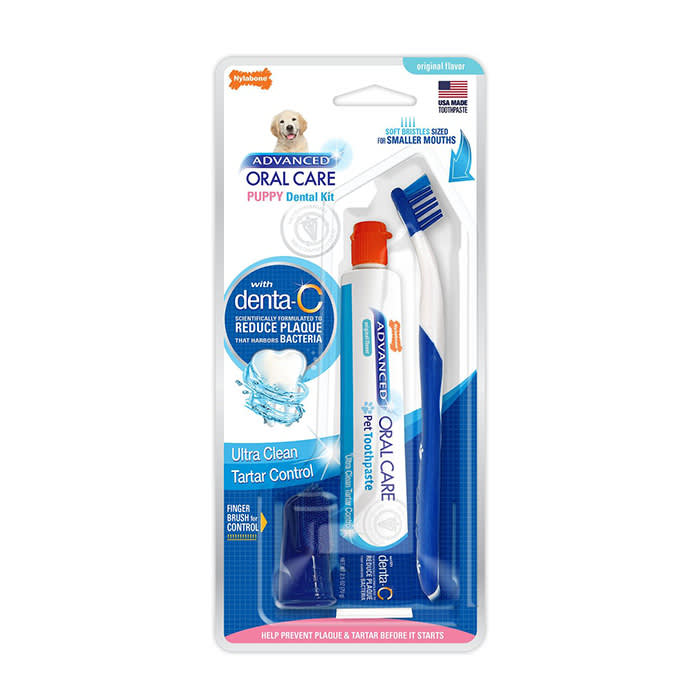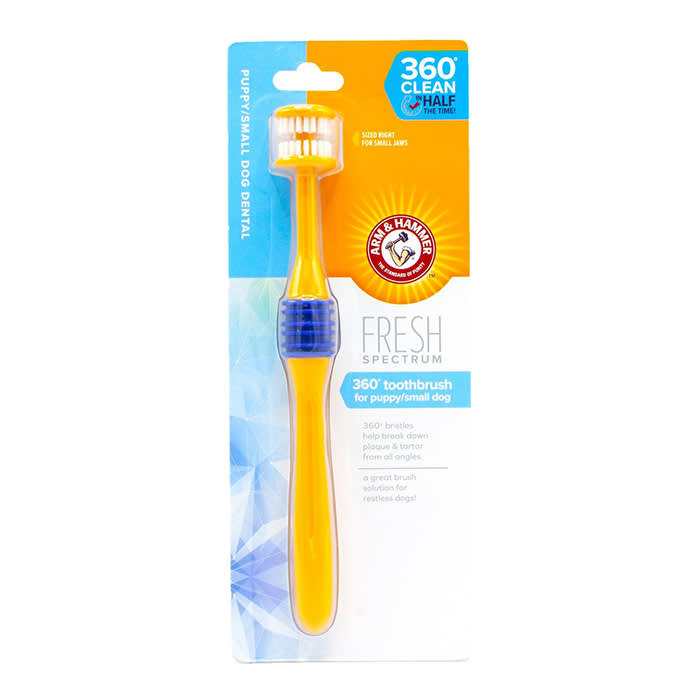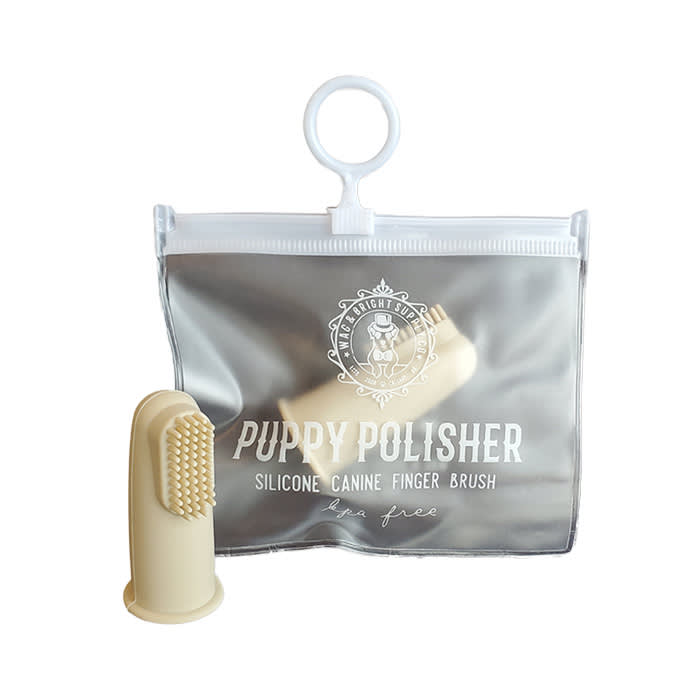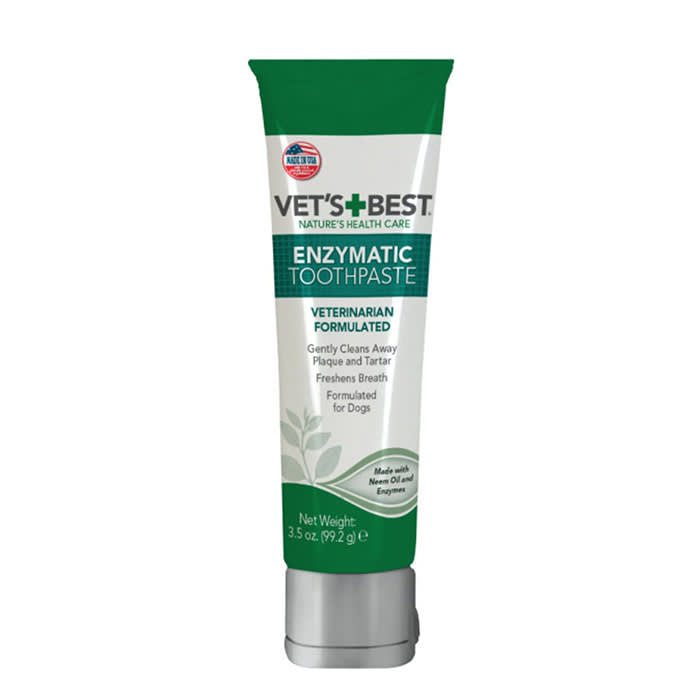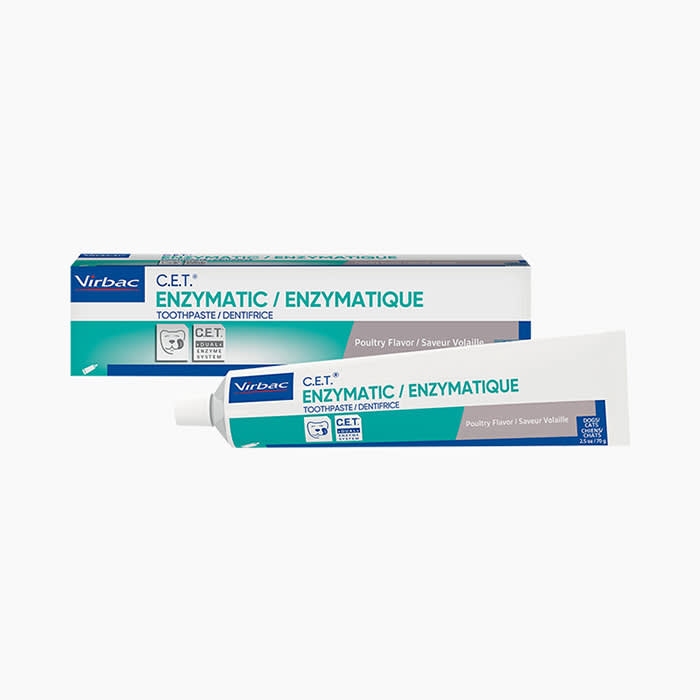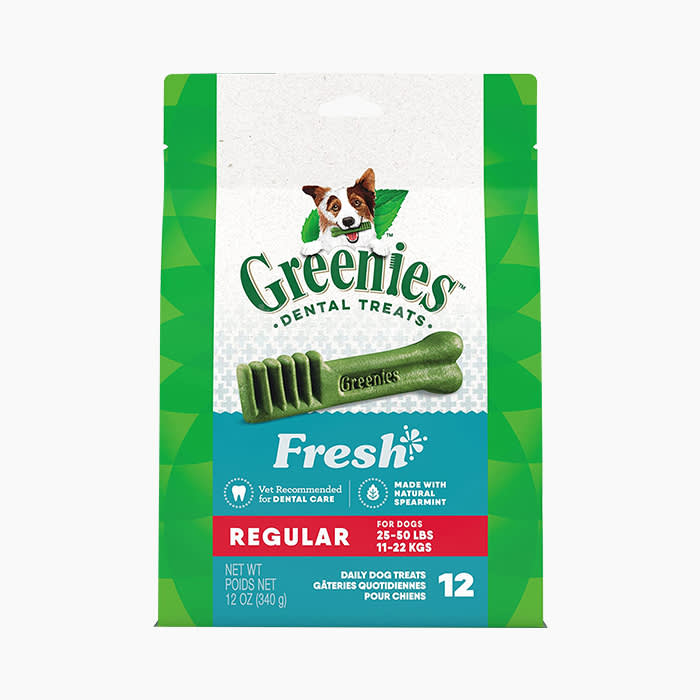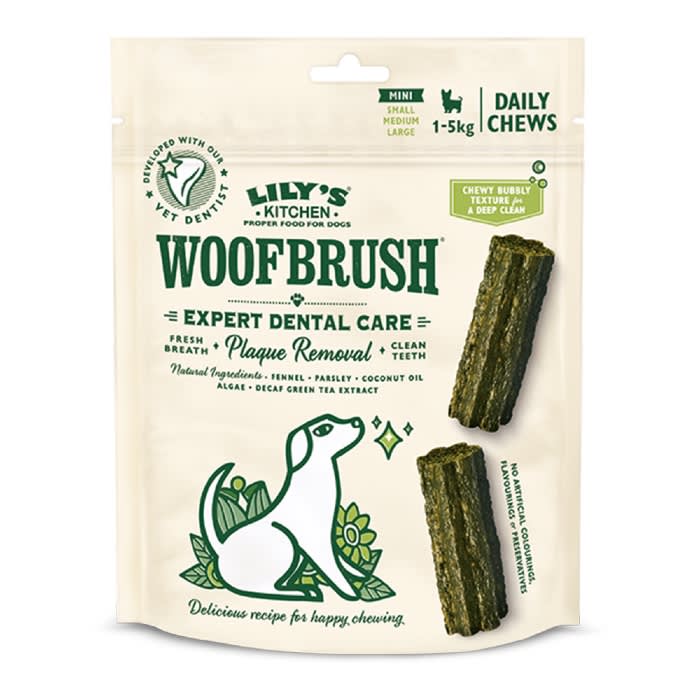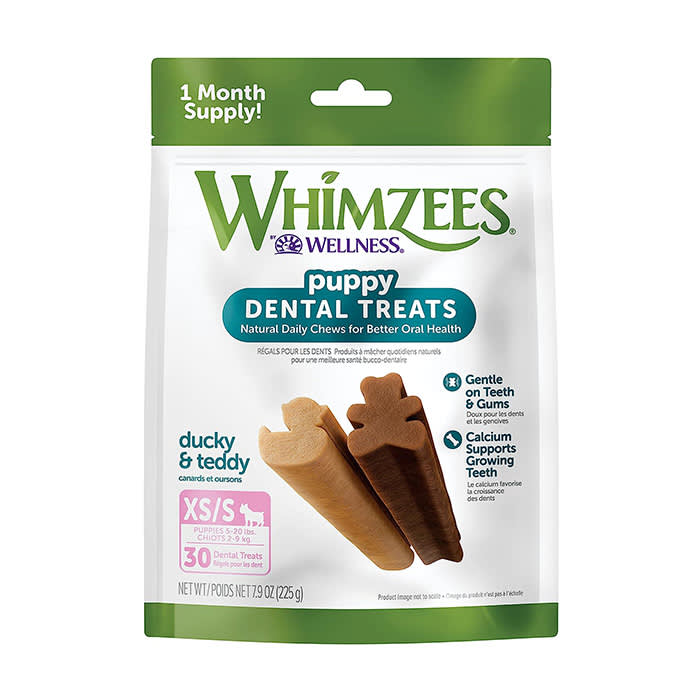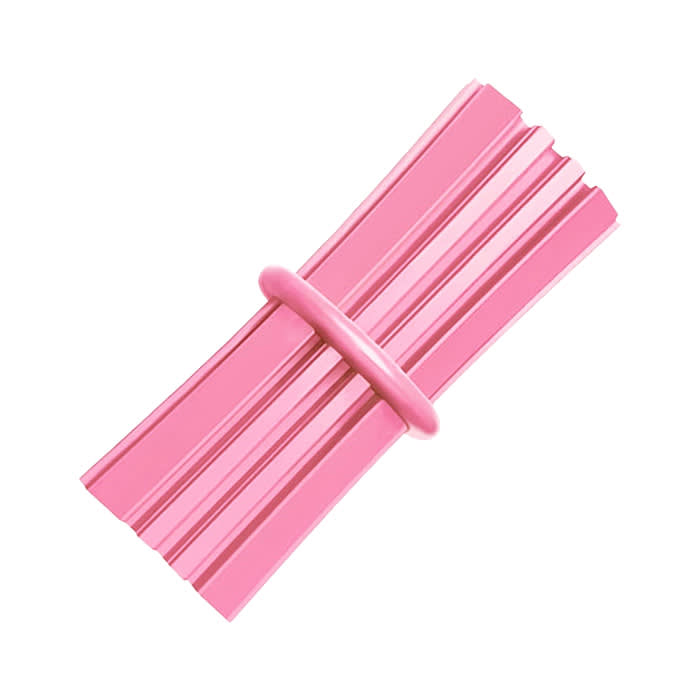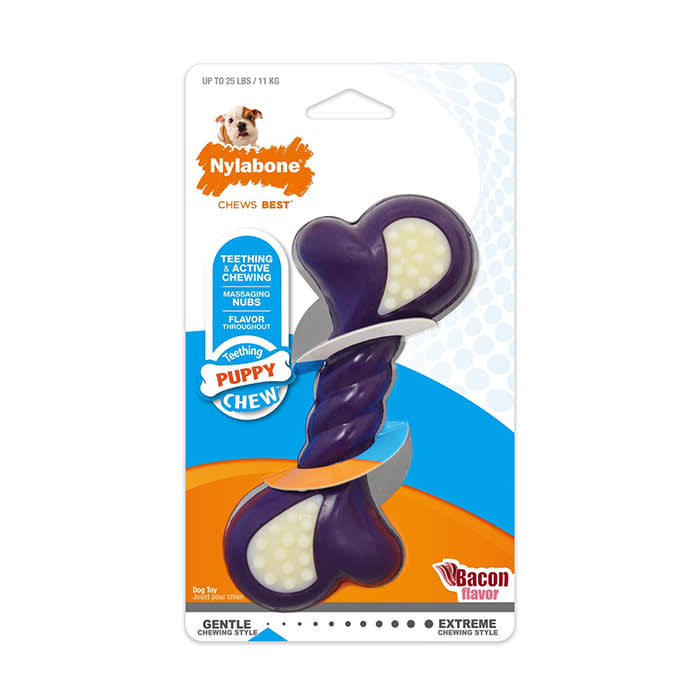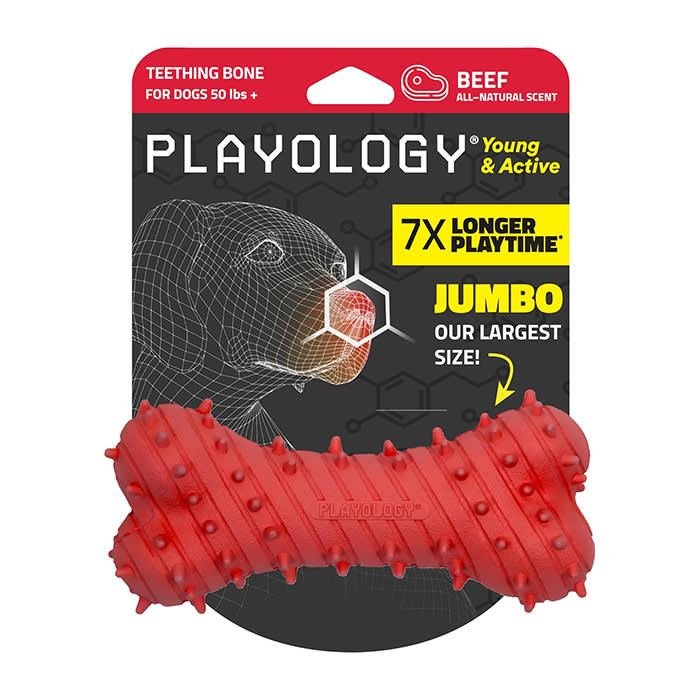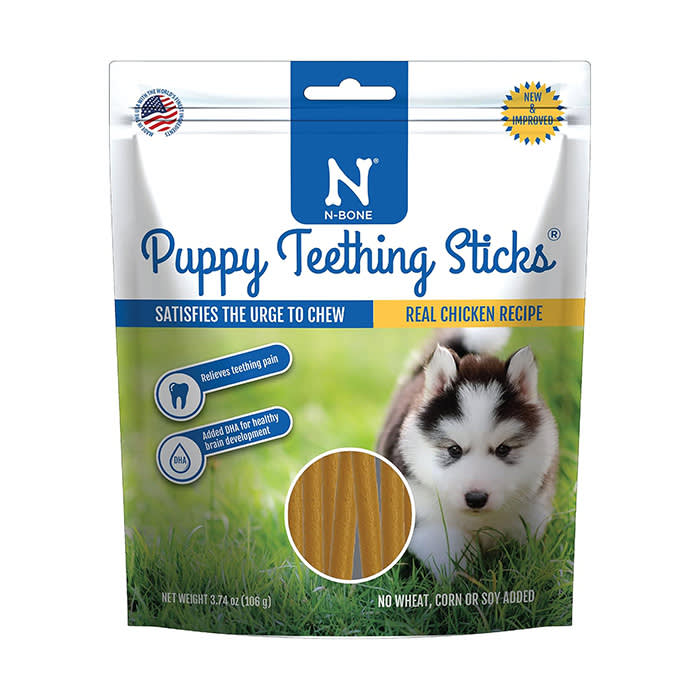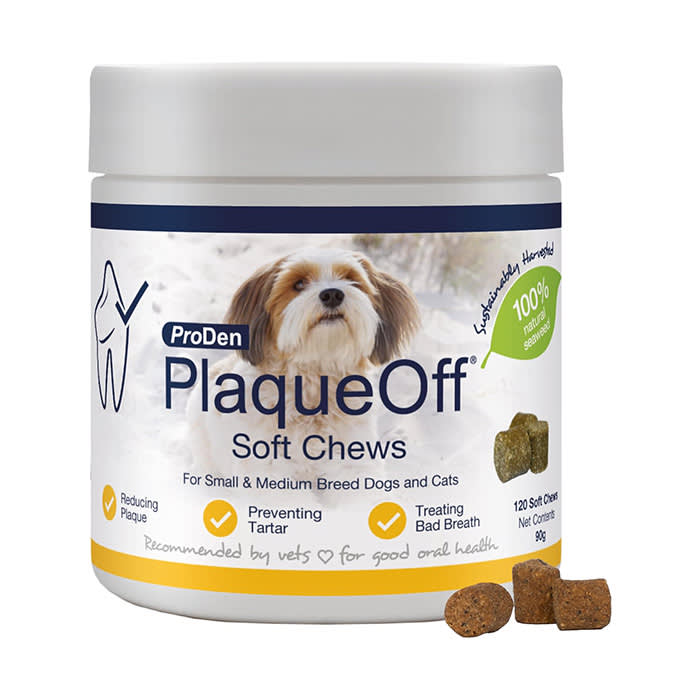Doggie Dental Care: How to Choose the Best Toothbrush for a Puppy
Those pearly whites need all the attention they can get
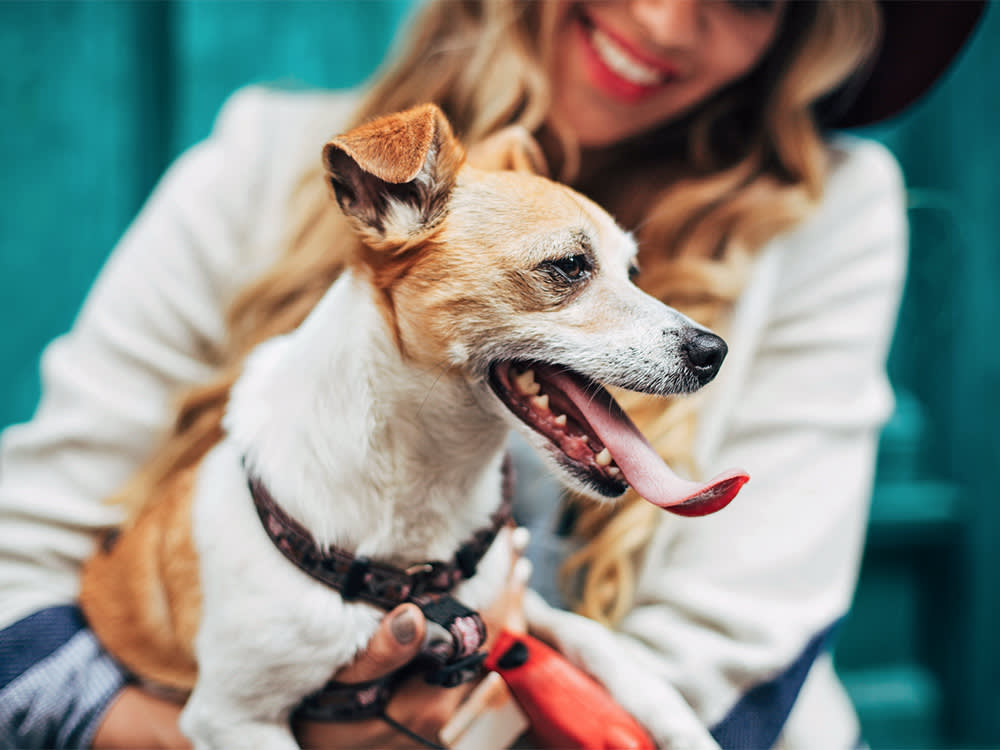
Share Article
In this article:
Why is dental care important?opens in a new tab How often should you brush a puppy’s teeth?opens in a new tab How to choose the best dental productsopens in a new tab Toothbrushes for puppies opens in a new tab Toothpaste for puppiesopens in a new tab Dental chews for puppiesopens in a new tab
It’s been reported opens in a new tabthat roughly 80 percent of dogs show signs of oral health issues by the age of three. So, maintaining good dental hygiene for your puppy is crucial for their overall health and wellbeing – and starting early is the best way to get ahead of any future problems.

littleKin™ is Kinship’s home just for puppy and kitten parents. Bop over to check out expert advice, new pet tools, and special deals—all curated for your newest family member.
opens in a new tabWhy is dental care important for puppies?
“Start brushing your dog’s teeth when you get them as a puppy at eight weeks old to get them used to their mouth being handled,” says Dr Lindsay Butzer.
Brushing their teeth regularly from an early age helps prevent plaque buildup, tartar formation – and eventually – gum disease, which can lead to painful infections and even tooth loss.
Plus, the earlier you start, the easier it will be to train your puppy to be comfortable with brushing and dental check-ups. Also, let’s be real; there’s a fine line between puppy breath and stinky breath.
How often should you brush a puppy’s teeth?
It’s best to brush a puppy’s teeth twice a day if possible. It might seem like a lot, but your puppy’s teeth require just as much care and attention as a human’s. Of course, not all puppies are going to take to brushing easily, which is why Dr. Butzer recommends treating brushing like any other training experience:
“Simply make it a fun experience for them and always give them a treat after to reward them for being good,” Dr. Butzer advises. “Try to brush the teeth gentlyopens in a new tab and avoid brushing too hard on the gums, as this can cause bleeding and irritation.”
How to choose the best dental care for your puppy
When it comes to choosing dental care products for your puppy, there are two factors to consider: gentleness and durability. A puppy’s teeth can be delicate and tender, while their temperament can be anything but. Products specifically designed for puppies often feature soft, durable rubbers that are designed to last until adulthood. When you can, opt for these products made for puppies over those designed for adult dogs. A good place to start is by opting for a Veterinary Oral Health Council (VOHC)-approved product where possible.
“Adult teeth are bigger and stronger than puppy teeth,” says Dr Butzer. “The roots are deeper and the teeth themselves are larger as they are the permanent teeth.” That said, adult dog products are built to clean and withstand adult dog teeth and are often too tough for puppies.
That’s why we’ve compiled a list of our favourite puppy-specific dental products that allow your pup to crush dental disease early on.
Btw, our editors (and their pets) picked out these products. They’re always in stock at the time we publish, but there’s a chance they’ll sell out. If you do buy through our links, we may earn a commission. (We’ve got a lot of toys to buy over here, you know?)
The best toothbrushes for puppies
The best toothpaste for puppies
The best dental chews for puppies
The best dental bones for puppies
The best dental treats for puppies
References:

Rebecca Caplan
Rebecca Caplan is a writer based in Brooklyn whose work has been featured in The New Yorker, Reductress, and Vulture. She lives in Brooklyn with her perfect, toothless dog Moose.
Related articles
- opens in a new tab
What Is the Best Way to Clean a Dog’s Teeth?
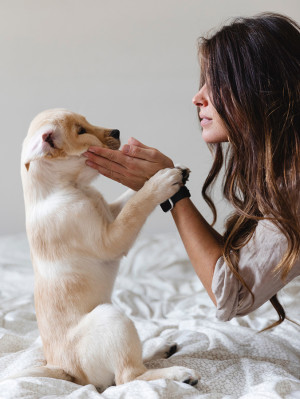 opens in a new tab
opens in a new tabCan Puppies Lose Their Teeth? Baby Teeth In Puppies
Whether you should save them for the tooth fairy is another issue entirely
 opens in a new tab
opens in a new tabWhen, Exactly, Should You Vaccinate Your Puppy?
If it’s time for their jabs, follow this guide
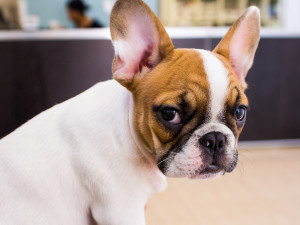 opens in a new tab
opens in a new tab10 Things to Ask At Your First Vet Visit
There are no stupid questions when it comes to your dog’s health
